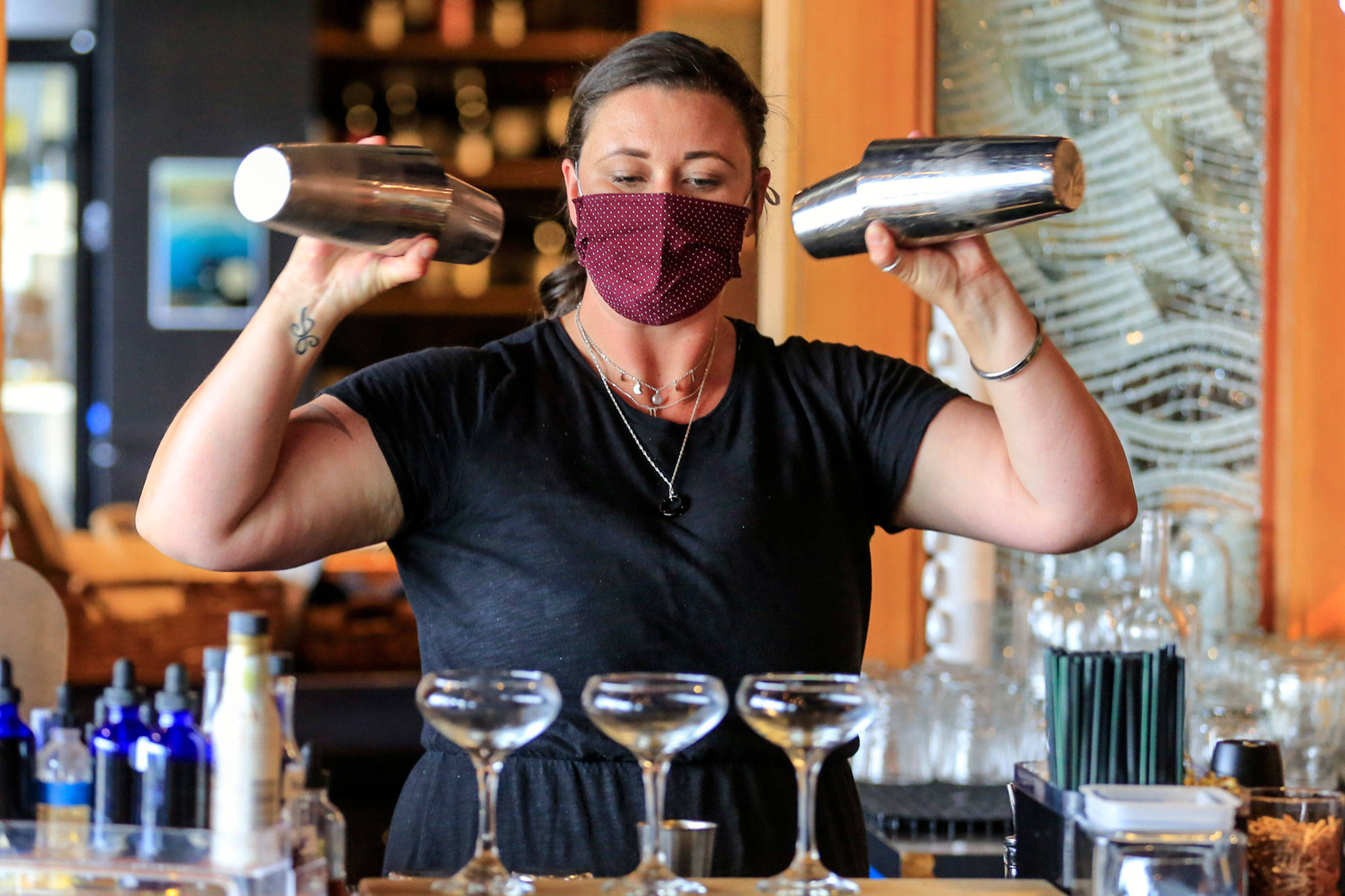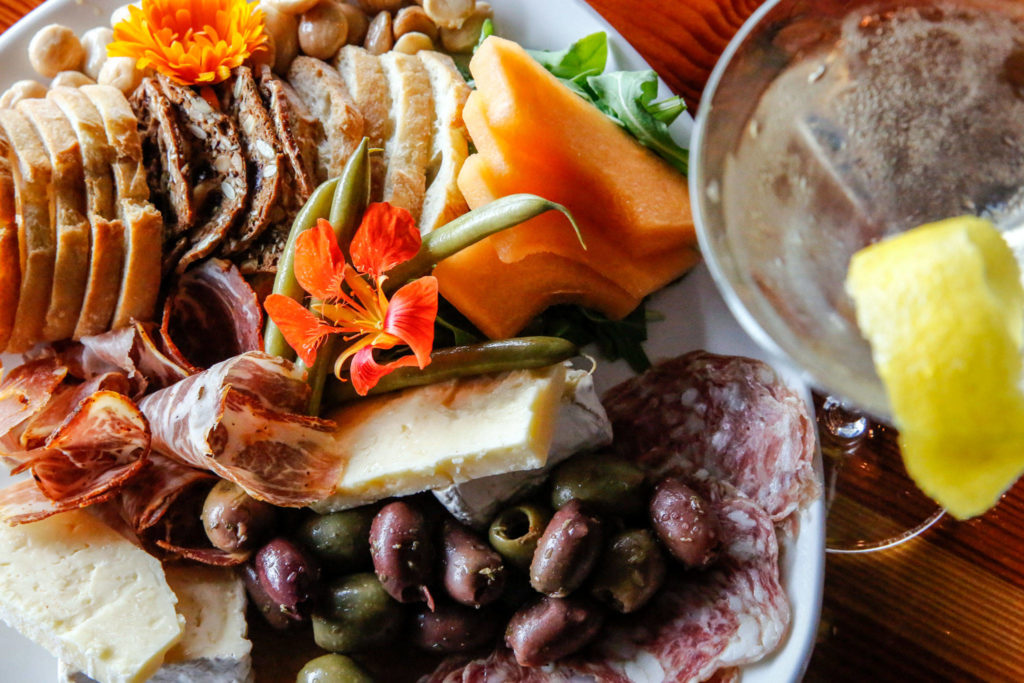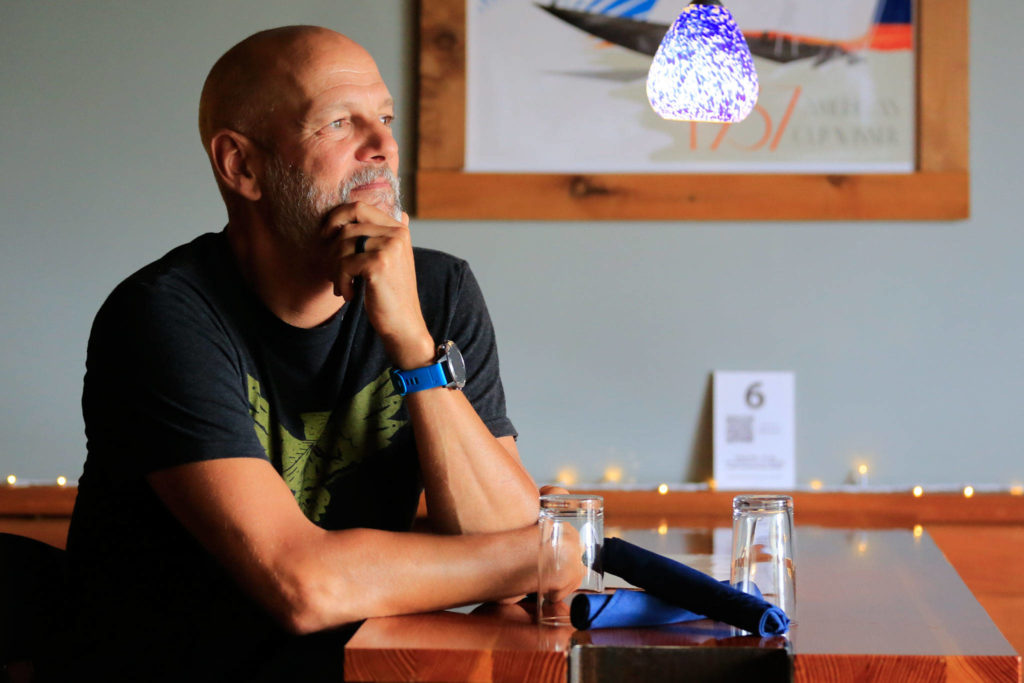EVERETT — Washington’s hospitality industry — from restaurants and hotels to putt-putt golf — is recovering, but the challenges ahead are plentiful.
“The good news is we are open, and operators now have a chance to survive on their own terms instead of being forced to be closed,” said Anthony Anton, CEO and president of the Washington Hospitality Association.
Anton, along with John Lundin, owner of Bluewater Organic Distillery in Everett, and Annique Bennett, tourism development specialist with Snohomish County, provided an overview of tourism across the state during a virtual discussion sponsored by Economic Alliance Snohomish County.
Tourism is Snohomish County’s second-largest economic driver. In 2018 and 2019, it generated more than $1 billion in annual spending, county officials have said. Last year, spending was negligible.
So far, this year’s numbers are promising, but a surge in delta variant infections could throw a wrench in the recovery, Anton said.
So far this summer, hotel occupancy rates are up, approaching 2019 levels. In Snohomish County, hotel occupancy rates for July were down just 6 percentage points from 2019 levels.
Since mid-June, the countywide average for occupancy stood at about 75%, with weekend averages near 85%, according to Smith Travel Research reports.
A year ago, occupancy rates were averaging 40%.
Snohomish County has fared better than other locations across the state, Anton told the panel.
From February 2020 to February 2021, hotel room revenue in Snohomish County was “only down 32%,” Anton said. “I say ‘only’ because during that same period, King County and Seattle room revenue was down more than 60%,” he said. King County venues are typically more dependent on out-of-state and international visitors — hence, the steeper revenue decline, he said.
Overall, Snohomish County leisure and hospitality sales were up 37% in March, April and May, according to a Department of Commerce report.
Across Puget Sound, retail and restaurant traffic is up nearly 70% since January, according to Zenreach, a retail consulting firm.
Despite the recent upswing, “We’re not healthy yet,” Anton said.
In mid-August, Snohomish County officials reinstated an indoor mask requirement, a move intended to blunt the spread of infection. A week later, Gov. Jay Inslee reimposed a statewide mandate and ordered that masks be worn by everyone, regardless of vaccination status, in retail stores, restaurants and other public indoor settings.
Most businesses are on board with the mask mandate, Anton said.
“The initial reaction is let’s do this and do what we can to keep our businesses open,” Anton said in an interview after the Economic Alliance panel. “We’d much rather do a step like this and keep our small businesses open and not make anymore draconian decisions,” he said, referring to last year’s lockdowns and business closures.
Where the mask mandate gets difficult, said Anton, is when restaurant staff are asked to enforce the rule. “That’s where everything falls apart,” Anton said. “Most people are going to follow suit, but if you do encounter someone with an agenda, it can be tough.”
“My only plea is to show grace,” he said. “Small businesses are trying to stay open and keep jobs.”
Lundin, Bluewater Distillery’s owner, saw business come roaring back after last year’s shutdown. Now the restaurant and distillery at the Port of Everett is experiencing “one of its best operating periods ever,” he said.
“We did what a lot of businesses did and leaned up our operations,” Lundin said.
Bluewater, which manufactures organic vodka, gin and other spirits, was in the process of expanding wholesale distribution when the pandemic struck. The company has since scaled back the effort and is instead focused on restaurant sales.
One factor that’s held the hospitality industry in check is a labor shortfall, Anton said. This summer, restaurants couldn’t always hire enough servers to fill open positions. Hotels have available rooms and the guests to fill them but don’t have enough staff to clean the rooms, Anton said.
Snohomish County’s hospitality industry employed 21,000 people in June, down from 27,000 in 2019. Statewide, the industry employed 282,000 in June, down from 350,000 before the pandemic, Anton said.
What happened to those former restaurant and entertainment workers “is a question everyone is asking, ” Anton said.
“Based on demographics, it seems we lost a lot workers to the grocery industry,” Anton said. People who would have normally sought restaurant, hotel or entertainment gigs found employment at supermarkets or retail distribution centers, he said.
The pandemic also pushed some older hospitality workers, many of whom expected to work well into their 60s, to hasten their plans, Anton said. In recent years, the average retirement age moved from 60 to 63 or 65, Anton said, but safety concerns over on-the-job exposure to the coronavirus prompted some older workers to retire.
Businesses are keeping an eye on the calendar. With public schools planning in-person instruction this fall, parents and caretakers may opt to enter the job market.
On Sept. 4, the federal CARES Act program, which pays unemployed workers an extra $300 a week in jobless benefits, ends, Anton noted. With the program’s conclusion, business owners with open positions hope to see more job applicants.
All in all, and down the road, the hospitality industry likes what it sees, Anton said.
One big plus: Unlike Baby Boomers, Millennials and Gen Z tourists don’t consider travel or eating out multiple times a week a luxury. More interested in “experiences than things,” they’re more likely to spend money on a canoe trip than a new gadget, Anton said.
“I think those shifting attitudes in consumers means the future is bright,” Anton said.
Snohomish County is drawing more visitors from Los Angeles, San Francisco, San Diego and Phoenix, based on a tally of air travelers coming through the passenger terminal at Paine Field, said Bennett, the county tourism specialist.
The greater numbers could indicate that Alaska Airlines and the tourism bureau’s effort to market Snohomish County as “Seattle NorthCountry” are reaching those markets and are getting the message across that the Paine Field terminal is an alternative to Sea-Tac International Airport.
More broadly, demand for air travel has risen since the beginning of the year, but it’s not yet clear if the upswing will continue.
Southwest Airlines, for one, said it anticipates fewer bookings based on the rise of COVID-19 delta variant infection rates and the cancelations of vacations and business conferences that could follow.
According to a recent Destination Analysis survey, 27% of travelers say they’ve postponed a trip and 23% reported that they cancelled a trip due to the delta variant.
Janice Podsada; jpodsada@heraldnet.com; 425-339-3097; Twitter: JanicePods
Talk to us
> Give us your news tips.
> Send us a letter to the editor.
> More Herald contact information.




























